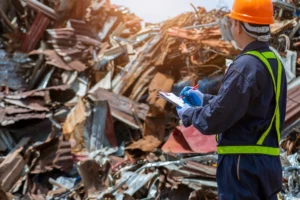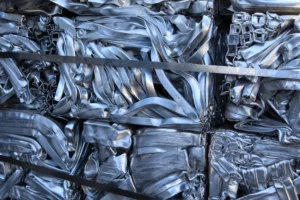Scrap metal recycling is growing in popularity because it not only puts valuable reusable resources back into the supply line while protecting the environment, but also provides a lucrative revenue source for scrappers. Taking your scrap metal to a scrap metal yard can generate extra funds or provide a source of income for those who devote their time to it. Even if you aren’t a full-time scrapper, you can contact services that specialize in scrap metal removal in Clare, MI, to pick up your scrap and pay you fair market value for it.
Some scrap metal sellers fail to maximize the earning potential of their scrap. They fall prey to several common scrap metal mistakes that limit their profits. If you’re interested in scrapping, it’s a good idea to educate yourself as a way or avoiding these common mistakes. Read on to learn how you can maximize your scrapping profits by dodging a few prominent mistakes when selling your scrap metal.
Mistake 1: Using a Disreputable Buyer
 It takes less energy to turn scrap metal into a new product than to harvest new resources to do the same thing. The metal is already there, and only needs to be modified for its new purpose. For example, the energy saved when you recycle one ton of metal is comparable to the energy required to run four homes for 4 entire months. These energy savings can be passed down to the consumer in the form of cheaper products, but it also reduces greenhouse emissions. This of course benefits everyone.
It takes less energy to turn scrap metal into a new product than to harvest new resources to do the same thing. The metal is already there, and only needs to be modified for its new purpose. For example, the energy saved when you recycle one ton of metal is comparable to the energy required to run four homes for 4 entire months. These energy savings can be passed down to the consumer in the form of cheaper products, but it also reduces greenhouse emissions. This of course benefits everyone.
Mistake 2: Not Properly Preparing Scrap
Recycling conserves diminishing natural resources. Instead of drilling deep and recouping new base metals, the recycling industry can make use of existing metals. Recycling even reduces the use of water that is otherwise needed to create the materials anew. When existing materials are used, it also preserves the natural landscape and protects existing wildlife. While companies may do their best to return a mine to pre-mining conditions, it creates a big disturbance to the species inhabiting the area. Also, mining for resources is also costly to the mining company, which gets passed down to the consumer with a higher final price of the product.
Mistake 3: Improperly Categorizing Scrap
Recycling existing materials keeps them out of the landfills. This is important, because many of these metal items take a long time to biodegrade. Also, landfill space is limited in its total capacity and reducing garbage and waste is an important step you can take to make a difference. In fact, every time you throw something away that can be reused in some way, you’re adding to the landfills unnecessarily. That’s why the slogan “reduce, reuse, recycle” is not just a catchy phrase, but should be followed by individuals and companies whenever possible.
Mistake 4: Not Separating Scrap
 It’s critically important to separate your scrap before it’s picked up or transported to the scrapyard. If the scrap is jumbled together in one unsegregated load, then the scrap buyer will only pay you the price for the cheapest metal in the load. For example, a load of mostly bright copper with a little copper tubing thrown in will only get the price for copper tubing if it’s not separated. Therefore, it’s better to take the time to separate your scrap by both metal type and grade. Even though it may seem tedious, it’s well worth your investment in time because your profits will increase significantly.
It’s critically important to separate your scrap before it’s picked up or transported to the scrapyard. If the scrap is jumbled together in one unsegregated load, then the scrap buyer will only pay you the price for the cheapest metal in the load. For example, a load of mostly bright copper with a little copper tubing thrown in will only get the price for copper tubing if it’s not separated. Therefore, it’s better to take the time to separate your scrap by both metal type and grade. Even though it may seem tedious, it’s well worth your investment in time because your profits will increase significantly.
If you’re planning to enter the scrapping field, even as an amateur, you’d be wise to avoid these common mistakes that are made by scrappers. By separating and categorizing scrap, properly preparing it, and only dealing with reputable buyers, you can maximize your profits while also doing something that benefits the industry and the environment. To learn more, contact Fair Salvage Company at (989) 386-7552.
